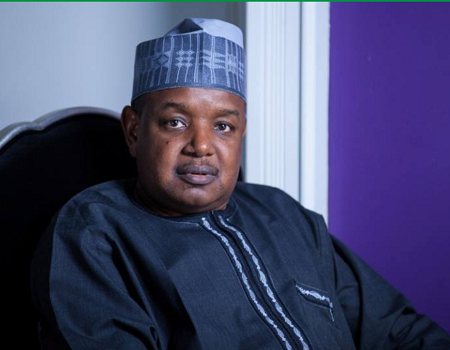FG okays N2.2tn supplementary budget
By Matthew Atungwu
The Federal Government of Nigeria has approved a N2.18tn supplementary budget for the 2023 fiscal year.
The Minister of the Budget and Economic Planning, Abubakar Bagudu, disclosed the details of the funding to State House Correspondents at the end of this week’s Federal Executive Council meeting President Bola Tinubu chaired at the Aso Rock Villa.
This according to him would fund urgent issues including national defense and security.
The supplementary funding was also targeted at providing welfare packages for workers and Nigerians at large.
Bagudu said, “N605bn for national defense and security is to sustain the gains made in security. It will accelerate the gains in that sector as the funds will be made available to security agencies before the year runs out.
“Equally a sum of N300bn was provided to repair bridges, including Eko and Third Mainland bridges, as well as construction, rehabilitation and maintenance of many roads nationwide before the return of the rainy season.
“The sum of N210bn was provided for the payment of wage Awards. In negotiation with the Nigeria Labour Congress, the federal government agreed to pay N35, 000 each to about 1.5 million employees of the federal government and that covers September, October, November and December 2023.”
Bagudu explained the underpinnings of the N400bn cash transfer payments the Council approved, saying, “You may recall that the federal government secured a $800m loan from the World Bank to pay cash transfers of N25,000 to 15 million households. The $800m is for two months, October and November.”
The Minister also disclosed that “the President graciously approved that an additional month should be funded by the federal government and that is what this N100bn is for.”
In order to promote the increase of output, he said, the Council also allocated N200 billion for seed, agricultural input, supplies, and agricultural tools, as well as infrastructure. Meanwhile, N100 billion was set aside to improve the Federal Capital Territory’s infrastructure.
Read Also: NIS requests better working conditions, more capability
Additionally, N18 billion was given to the Independent National Electoral Commission (INEC) to oversee the November elections in Imo, Kogi, and Bayelsa.
In order to keep its last-ditch commitments to Nigerians, the Federal Government approved N5.5 billion to launch the student loan programme in January 2024.
While the FG intends to fund the extra-budgetary spending from revenues accruable to it from its recent policies like the removal of subsidy on petrol, it is leaving no stones unturned as it ordered the DMO to raise the nation’s domestic borrowing ceiling to source for more money from the debt market to support its planned expenditures when necessary.
The former Kebbi State Governor also reiterated the administration’s commitment to maintain the January-December budget implementation cycle.
He cited the legislative and executive backgrounds of the President, Vice President, and other members of the Council, stating that the “budgeting process is benefiting from this collective wisdom and would foster mutual respect for institutions which will narrow the areas for dispute.”
Former President Muhammadu Buhari in January, signed the 2023 Budget of N21.83trn along with the 2022 Supplementary Appropriation Bill into law.
Speaking at the signing of the eighth and final annual budget of his Administration, Buhari said the aggregate expenditures of N21.83 trn, represented an increase of N1.32 trn over the initial Executive Proposal for a total expenditure of N20.51 trn.
The former President explained that the 2022 Supplementary Appropriation Act would enable the administration to respond to the havoc caused by the recent nationwide floods in the infrastructure and agriculture sectors.
Meanwhile, Nigeria’s total public debt may hit N118.37tn in the next three years, reports said.
The figure was based on analyzing Nigeria’s current debt profile and the debt projections in the Medium Term Expenditure Framework and Fiscal Strategy Paper 2024-2026.



